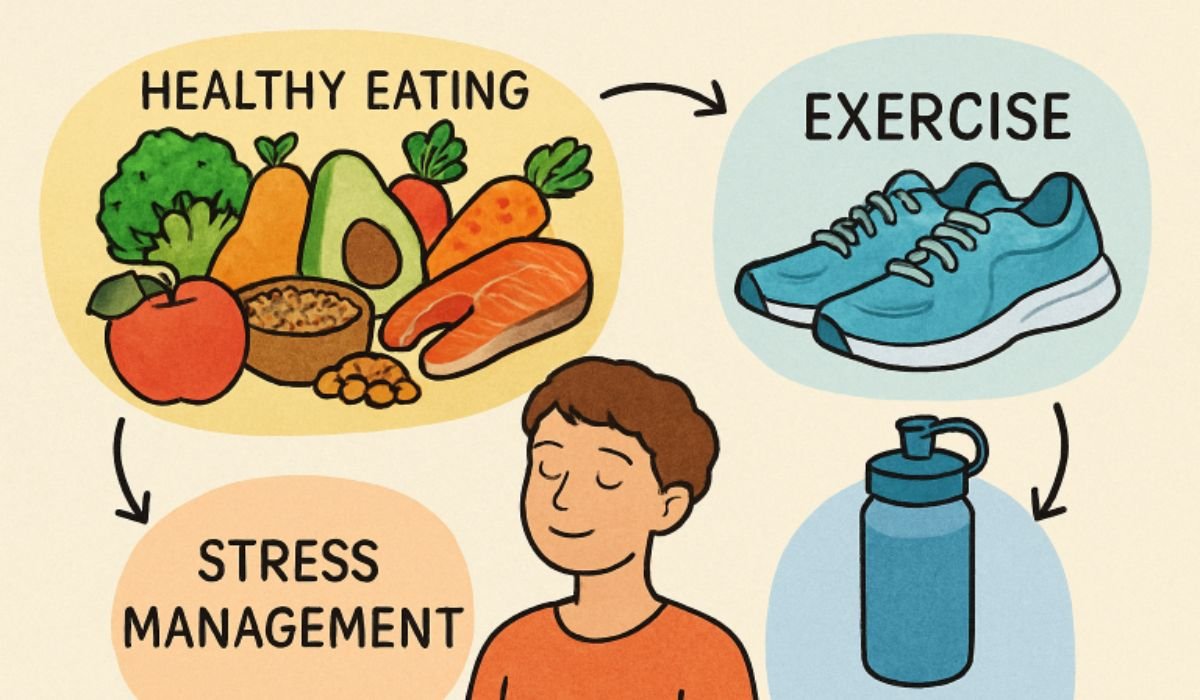When people think about weight loss, they usually focus on eating clean, following structured workouts, and finding the best trainer to guide them. Whereas those are basic pieces of the astound, there’s another component that can make or break your advance: rest. Indeed, with an incredible coach planning workouts and propelling you every day, insufficient rest can slow down your progress.
The reason is basic, however profound—your body needs recuperation as much as it needs work out. Without enough rest, hormones get disrupted, stress builds up, and your metabolism slows down. Ultimately, weight loss becomes much harder, if not impossible. To achieve lasting fat loss, you need to support your body with quality sleep and give it a true nervous system reset every night.
Sleep as the Hidden Driver of Weight Loss
Rest isn’t fair approximately energising your intellect; it’s also when your body repairs tissues, equalizations hormones, and directs the digestive system. These capacities are fundamental if your objective is to lose fat and construct incline muscle.
When sleep is compromised, two key hormones—ghrelin (which makes you feel hungry) and leptin (which signals fullness)—get thrown out of balance. This implies you wake up longing for high-calorie nourishments and discover it harder to halt eating, even when you’re full. For somebody attempting to adhere to a solid arrange, this hormonal disturbance can fix a whole week’s worth of effort in a fair few days.
Read Also: Candizi: The Guilt-Free Candy That’s Actually Good For You
Cortisol, Stress, and the Weight-Loss Plateau
Another major player affected by poor sleep is cortisol, your body’s stress hormone. While cortisol is useful in short bursts (like during a tough workout), chronically high levels tell your body to hold on to fat—particularly around the midsection.
This is why even people training under excellent guidance struggle to lose weight if they’re sleep-deprived. High cortisol makes your metabolism sluggish, keeps you inflamed, and reduces your body’s ability to recover between workouts. Without lowering cortisol through quality sleep, you’re essentially fighting an uphill battle.
Why Training Harder Doesn’t Work
It’s tempting to think that pushing harder in the gym can compensate for poor sleep. But the opposite is true. Intense exercise adds more stress to your system, which can backfire if you aren’t giving your body the rest it needs. Instead of building muscle and burning fat, your body remains stuck in survival mode.
That’s why the best coaches emphasise recuperation as much as they do escalation. Without legitimate rest, your workouts won’t provide the results you’re trusting for, no matter how reliable you are.
The Role of a Nervous System Reset
Your nervous system is at the core of this equation. It operates in two states:
- Thoughtful Anxious Framework (fight-or-flight): Actuated amid push and workouts.
- Parasympathetic Anxious Framework (rest-and-digest): Enacted amid rest and unwinding.
If you’re not resting well, your body gets caught in fight-or-flight mode, which shuts down fat burning, moderates assimilation, and debilitates your recuperation. A proper nervous system reset through consistent, high-quality sleep allows your body to switch into rest-and-digest mode—the state where genuine fat loss and mending happen.
How to Improve Sleep for Better Results
The good news is that you can now choose when to rest. Here are some ways to help your body heal:
- Follow a set schedule: To set your internal clock, go to bed and wake up at the same time every day.
- Make your space good for sleeping: Make sure your room is cool, dark, and quiet. Power outage shades and white noise machines can help.
- Don’t use blue light before bed: To help your body make more melatonin, cut back on your phone, TV, and computer use for at least an hour before bed.
- Wind down with unwinding: Light extending, profound breathing, or reflection can calm the apprehensive framework some time recently bed.
- Avoid stimulants late in the day: Caffeine or overwhelming suppers in the evening make it harder to move into rest mode.
These little alterations energise a more profound, more therapeutic rest cycle—giving your body the anxious framework reset it needs to burn fat more effectively.
Sleep: The Foundation of Lasting Weight Loss
Poor sleep doesn’t just leave you groggy; it actively blocks your weight-loss progress. It disrupts hunger hormones, raises cortisol, limits recovery, and prevents your nervous system from switching into the mode that allows fat burning. Indeed, with the best coach, nutrition arrange, and workout program, your progress will slow down without this foundation.
True advance comes from adjustment. By blending organised preparation with steady, therapeutic rest, you give your body the chance to repair, reset, and at last begin shedding persistent fat.
The Missing Link in Fat Loss
If your weight misfortune feels stuck in spite of your devotion, don’t focus on your workouts or diet—look at your rest. nervous system reset through regular exercises with integrated breathwork , anti inflammatory diet and mindfulness practices may be the lost connection between where you are presently and the outcomes you’ve been working so hard to accomplish.
You May Also Like: Grouse Cheese: The Secret Star of Gourmet Platters You Need to Try











